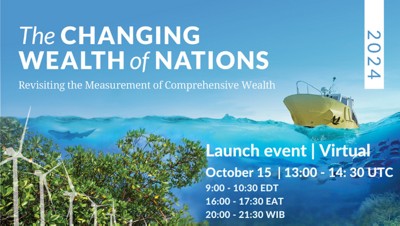The Global Program on Sustainability (GPS) Seminar Series shares the latest knowledge on how policy makers and the financial sector can integrate environmental sustainability considerations into decision making. Knowledge sharing and learning are central to GPS' goals, and these virtual sessions present an opportunity to highlight real-life case-studies, ongoing work and lessons learned from countries that are beginning to look beyond GDP and traditional financial metrics to account for environmental risks and opportunities.
- PAST SEMINARS
Date: January 01 - May 31, 2025 ET
Location: Online
Virtual:
gps@worldbank.org






















